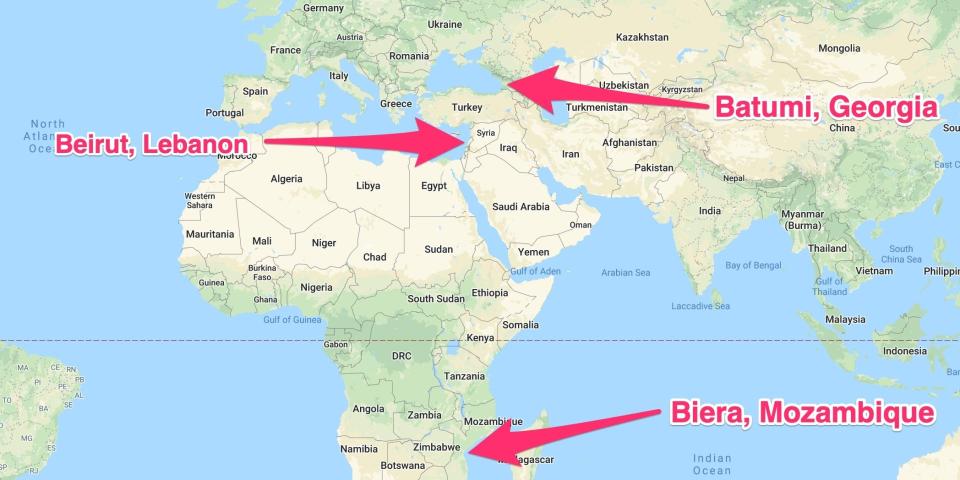The ship carrying the ammonium nitrate that blew up in Beirut was abandoned in 2014 by a Russian businessman, who has said nothing since the explosion

Hasenpusch/picture alliance via Getty Images/Business Insider
A cargo ship that brought 2,750 tons of explosive material to Beirut in 2013 belonged to a Russian businessman named Igor Grechushkin, the ship's former captain told Radio Free Europe/Radio Liberty.
The cargo was impounded in 2014 and stored there until it exploded on Tuesday, with devastating effects.
Grechushkin abandoned the ship after it got stuck in Beirut, leaving the crew stranded, the captain said.
Grechushkin now lives in Cyprus, the captain said. Cypriot authorities said they had not received Lebanese requests for help reaching him, a Cyprus Mail report said.
Business Insider was unable to reach him for comment. As of Thursday morning, he had made no statement about the explosion.
The cargo ship that brought 2,750 tons of ammonium nitrate to Beirut that exploded on Tuesday with devastating consequences was abandoned in 2014 by a Russian businessman now based in Cyprus, according to multiple reports.
The former captain of the MV Rhosus, Boris Prokoshev, identified Igor Grechushkin as the owner of the ship in an interview with the Russian edition of Radio Free Europe/Radio Liberty on Thursday.
Prokoshev said Grechushkin now lives in Cyprus, a common destination for wealthy Russians.
Business Insider was unable to reach Grechushkin for comment, and a LinkedIn profile with his name was inactive. CNN said its calls to him weren't answered.
Grechushkin has not made any comment about the explosion, which killed at least 135 people and wounded 5,000 more people.
The Rhosus was meant to take the ammonium nitrate from Batumi in Georgia — the former Soviet nation on the Black Sea — to Mozambique.
But Prokoshev said that after the crew set sail, the journey was not deemed profitable enough. The Rhosus detoured to Beirut's port in late 2013 to take on more machinery, which Prokoshev said was too heavy for the ship.

Google Maps/Business Insider
In Beirut, inspectors found the ship to be unseaworthy and barred it from sailing further. Some of the crew members were released, but Prokoshev said that he and three others were stuck there for 11 months.
"We weren't paid a dime!" he said, according to a translation of the interview, adding that Grechushkin "didn't even buy food for us."
"We can say that he left us in a knowingly dangerous situation, doomed us to hunger," he said.
Prokoshev said Lebanese port officials took pity on the seafarers and fed them.
After a prolonged legal battle, Grechushkin paid for the remaining crew members to be taken to Odesa, Ukraine.
But he abandoned the vessel and its explosive cargo. The ammonium nitrate was moved into storage, where it stayed until it detonated on Tuesday, Business Insider reported.
Prokoshev, a Ukrainian, said he met Grechushkin in 2013. The Rhosus' whole crew was changing, and Grechushkin did not mention that this was because of "nonpayment of salaries," Prokoshev said.
The Siberian Times on Wednesday published a photo it said was of Grechushkin, posing on a motorcycle. Business Insider was unable to verify whether the photo is genuine.
—The Siberian Times (@siberian_times) August 5, 2020
It's unclear where Grechushkin is now.
Grechushkin was said to have had an office in the city of Limassol, Cyprus, the Cyprus Mail reported. The Cypriot interior ministry told the newspaper that he was not a Cyprus passport holder.
The police on the island said they had contacted Lebanon to offer assistance but had not heard back, the report said.
Read the original article on Business Insider

